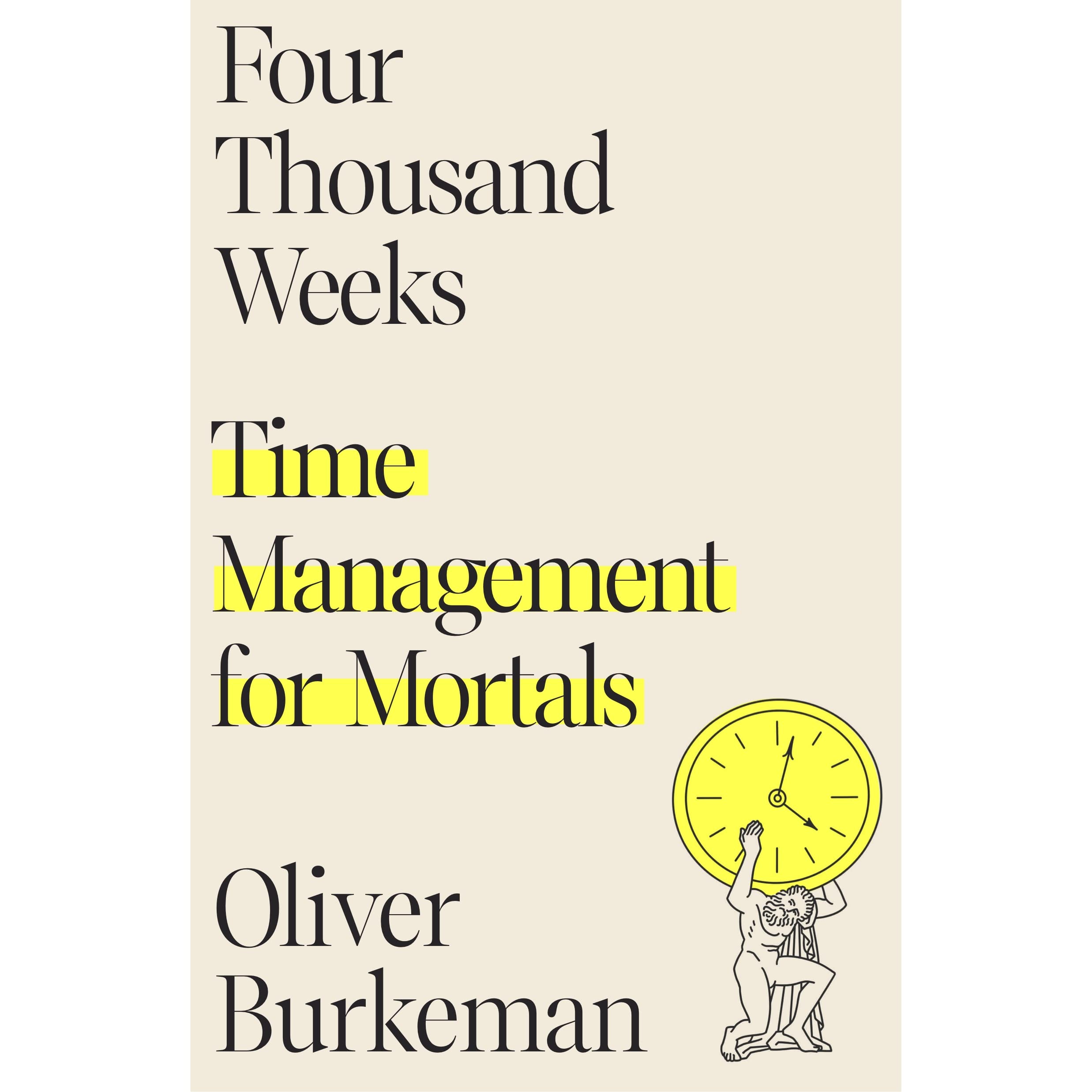First published: January 28, 2023 @ 6:00 pm

Four Thousand Weeks by Oliver Burkeman
Is your time under pressure? Does the thought of not being able to manage your time well ever cross your mind? If you are looking for a way to regain control of your time, then this is the book for you.
Four Thousand Weeks: Time Management for Mortals is a fascinating read that will make you rethink your view on time and give you a whole new way of looking at it.
This Oliver Burkeman‘s book was written in an engaging manner and manages to present his thoughts in an interesting and readable way. He tries to emphasize the polar opposite of the hustler attitude.
If you live to the age of 80, you will have around four thousand weeks. A sum that, in the words of Oliver Burkeman, is “absurdly, terrifyingly, insultingly short.”
Burkeman points out that given the comparatively short period of even the longest lifespan, time management ought to be everyone’s number one priority.
We’ve missed how to live in the moment and enjoy life in a world obsessed with arranging their schedule to the last minute, maximizing their economic position at the expense of their life, and utilizing our abilities in order to make the most of them. Furthermore, the book will show you why it is difficult to control your time and why you ought to no longer prioritize it.

Photo by Simon Maage on Unsplash
There are three points that we can learn from this book:
1. Time became increasingly significant to humans when they began to investigate and comprehend it.
2. Increase your productivity by allowing for procrastination and prioritizing your duties.
3. Family activities and interests should be valued in spare time.
Now, let’s get into the details of these points.
Before Time was Seen as a Significant Issue, Humans Didn’t Give Much Thought about It
When we look back in time, we may see that average human did not always measure portion of time like we do nowadays. Time also played a role, as they had to plant and reap within a specific season, get up early and perform certain tasks before sundown.
However, people did not consider it in the same manner that we do today. They didn’t strive to plan their days ahead of time or constantly optimize the personal productivity to save time. People didn’t cherish their short days on earth because religion helped propagate the idea in the afterlife.
This can be both a positive and a negative thing. People were less stressed and anxious back then since they weren’t under the burden of deadlines and limited time. Nonetheless, progress was made at a considerably slower pace.
The constant strain of better managing our supply of time caused us to lose sight of the main goal: having a great time as it is.
As a result, the message is that we should quit arranging our lives. Allow for blank spaces, white space, and unplanned time. Merely said, enjoy a meaningful life rather than planned it.
Prioritization and Acceptance of Procrastination can Result in Increased Productivity
Let’s start with a popular misconception: everyone procrastinates. Yes, some of the most successful internet experts, public speakers, and best performers engage in this behavior.
Because this is the way we’ve been programmed to behave. We are unable simply work at our peak all of the time. Allowing no free time in your life and striving to control every day precisely is an unhealthy way of life that you will have to quit sooner or later.
Alternatively, strive for a reasonable balance between postponement and efficiency. When you prioritize your to-do lists from most essential to least urgent, you are considerably more likely to complete them.

Photo by Glenn Carstens-Peters on Unsplash
Allow your mind to roam and rest after completing a task. This will allow you to return to work more refreshed than before.
Also, make sure to return to whatever you were doing in a timely manner. Finally, never undertake multiple projects at once in the mistaken belief that you are able to multitask.
Use Your Spare Time Doing the Activities You Enjoy
If you’re able to carefully prioritize your duties, cut them into tiny pieces, and do things quicker this way, you’ll find some free time. Try to slow down and allowing some time to recover and refresh is advised by the author.
The collapse of leisure time, which began decades ago, resulted in a massive buildup of tension, frustration, and worry, which the past generation handed on to the next. It’s our chance to fix that.
First and foremost, select an activity that you enjoy. You may be hesitant to participate in activities that do not provide money benefits, but this is only a reaction caused by your overachieving mentality.
Spend the rest of your spare time with family and your loved ones. Spending more time on leisure activities will increase your efficiency over time.
Final Review
According to Four Thousand Weeks, we should not maximize our schedules but rather leave time for unplanned time and leisure activities. We can greatly enhance the quality of our lives by trying to enjoy the simple things, take joy in hobbies, and bond with our loved ones.
Reading this book will cause you to reconsider your time management and absence of free time in your life, prompting you to take steps to enhance your position.
“Confronting the worst-case scenario saps it of much of its anxiety-inducing power. Happiness reached via positive thinking can be fleeting and brittle, negative visualization generates a vastly more dependable calm.”
– Oliver Burkeman
Subscribe to Early Unicorn for more international bestsellers summaries, routine books, personal development tips, and more.
Get Four Thousand Weeks: Time Management for Mortals by Oliver Burkeman here:




